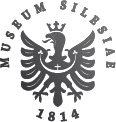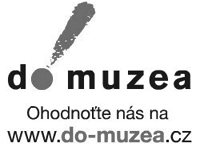Slezský sborník
rok 2015
ročník 113
číslo 1
Obsah / Contents
Studie / Articles (s. 5–140)
Irena KORBELÁŘOVÁ – Rudolf ŽÁČEK: Opavští erbovní měšťané předbělohorské doby. Prolegomena k výzkumu
s. 5–21
Opava Armorial Burghers form the pre-White Mountain Period. Prolegomenon to Research
The study is an introductory text into the problems of Silesian armorial burghers or armorials of rural origin in Opava and Opava region during the pre-White Mountain period. It summarises the bases of research of the social group within the specific Bohemian Lands region: it summarizes the existing literature, evaluates sources in domestic as well as foreign institutions, outlines the basic rules of promoting persons of burgher and serf birth by awarding them arms and title, or by acknowledging their full nobilitation. Further, on the basis of current research, the study presents the list of persons from Opava and Opava region promoted by armorial document in the 16th and the beginning of the 17th century. Finally it outlines further objectives and prospects of the research, especially prosopographic study.
Key Words: Opava, Silesia, towns, armorial burghers, Early Modern Ages
Jiří BRŇOVJÁK: Hrabě – kníže – vévoda. Titulární vzestup Alexandra Josefa Sułkowského, držitele bílského panství
s. 23–46
Count – Prince – Duke. Titular rise of Alexandr Josef Sułkowski, the Proprietor of Bílsko Demesne
The study deals with selected aspects of social and property career of the Polish aristocrat Alexandr Josef Sułkowski (1695-1762), an important Polish-Saxon politician. Sułkowski gained all higher titles possible within the Holy Roman Empire and the Habsburg monarchy as well as the Bohemian Lands (count, prince, duke). The author puts Sułkowski’s social rise within the Habsburg monarchy in context with his enforced withdrawal from the Polish-Saxon politics and with establishing landed estate first in Poland and later also in Austrian Silesia. It also deals with the circumstances of promoting the Bílsko demesne first to princedom (1752) and later to Duchy (1754). It is particularly concerned with the clarification of the fact that Sułkowski was simultaneously promoted into imperial as well as Bohemian princedom (1752), it also analyses the consequent extension of the princedom titles from primogeniture line to all the legal descendants (1754). It is based on the so far exploited archive materials from Vienna Austrian State Archive which explain the phenomenon of double princedom titles by the existence of the Bohemian-Empire agreement on reciprocal awarding of Bohemian and imperial titles.
Key Words: Austrian Silesia, Alexandr Josef Sułkowski, princedom title, ducal title, Empire court office, directorium in publicis et cameralibus, Fridrich, monarchal powers
Jakub IVÁNEK: Jánské Koupele. Historie lázní v 19. století
s. 47–70
Jánské Koupele. The Spa History in the 19th century
The study deals with the history of former spa Jásnké Koupele in Opava region. From the beginning of the 19th century till the beginning of World War II, it was the nearest and in times of its heyday also the main spa resort for Opava residents. The study covers the spa history from its establishment in about 1810 till the turn of 19th and 20th century, when it became modern and prospering spa resort. The myths passed about the older period, before the establishment of the spa, are also dealt with. The general objective of the study is the correction of the formerly passed inaccurate information on its history, it tries to outline the waves of flowering and stagnation of the resort depending on the owners’ interests and the changing social circumstances which could have played into the hands of the spa development or, on the contrary, it could have become one of the decaying institutions. The study also deals with the expensive technological development of the resort at the end of the 19th century. As far as the older period is concerned, the study is based on old literature and advertising in periodicals and for the end of the 19th century also from the preserved archive sources.
Key Words: Jánské Koupele; spa; balneology; Sudetes; Opava region; Razumovsky; Arz-Vasegg
Marzena BOGUS: Statystyczne podstawy badań społeczności nauczycieli szkół ludowych Śląska Austriackiego (1869–1914). Zalety i ograniczenia źródeł
s. 71–88
Statistical basis research on elementary school teachers in Austrian Silesia (1869–1914). Advantages and limitations of source material
The study presents quantitative survey on the professional community of elementary school employees in Austrian Silesia. It examines the most important statistical figures regarding elementary school teachers and also discusses some problems with a correct interpretation of the data specified in source material, especially in official statistics.
Key Words: Austrian Silesia, teachers, elementary schools, statistical research
Ivana KOLÁŘOVÁ: Bezpečnostně-politické poměry a působení pořádkových složek na Hlučínsku ve 20. letech 20. století
s. 89–103
Security situation and activities of security forces in Hlučín region in 1920's
The article deals with the activities of Czechoslovak security forces in the Hlučín (German: Hultschin) region during 1920s, when the area became part of Czechoslovakia according to the Paris Peace Treaty. The text describes structure of state police and gendarmerie in the region and it analyses the forms of pro-German agitation and espionage, as well as the response of security forces to these activities. The anti-German riots of Czech nationalists and fascist are not neglected as well.
Key Words: Czechoslovakia, gendarmerie, police, Hlučín (German: Hultschin) region, Silesia, Upper Silesia
Pavel Kladiwa: Národnostní politika na meziválečném Hlučínsku (s důrazem na základní školství)
s. 105–128
National Policy in the Inter-War Hlučín Region (with Accent on Elementary School System)
Rather large German minority lived in Hlučín region, however, all German schools were closed down (except for two villages) after the annexation of the region to the Czechoslovak Republic in 1920. When parents wanted to provide their children with education in German language, they had to send them to schools in Opava. Several Czech parents from the Hlučín region wanted German education for their children as well. Even though it was not against the law (in Silesia, unlike Moravia, law that a child may attend only school whose language corresponds to his/her nationality was not in force), authorities tried to prevent the Czech speaking Hlučín children from studying at German schools. The study gives detailed analysis of archive materials and deals with the problems in the context of the national policy of the state, especially analysis of the effective legislation and how in Hlučín region the legislation was circumvented by the authorities themselves, especially by the plenipotentiary government official Josef Šrámek.
Key Words: Czechoslovakia 1918–38, Hlučín region, German minority, national relations, educational policy
Tereza VALIHRACHOVÁ: Protižidovské aktivity polské Národní demokracie v Horním Slezsku ve 30. letech 20. století
s. 129–140
Anti-Semitic activities of the National Democracy in the Upper Silesia during the 1930's
This study is focused on anti-Jewish activities of Upper‑Silesian National Democrats during the thirties. The introductory part deals with the general establishment of the Upper Silesia National Democracy before the May coup. The main part describes anti-Jewish activities that were carried out mostly by young members of national-democratic groups like Stronnictwo Narodowe, Obóz Wilekej Polski or Obóz Wszechpolski, par-ticularly in Bielsko, Chorzów and Katowice. The main part is based mainly on studies of archival sources in Poland.
Key Words: National Democrats, Upper Silesia, Anti-Semitic activities, Jews, 1930's
MATERIÁLY / MATERIALS (s. 141–150)
Jan KUBICA: Horst Bienek a jeho dílo ve světle novějšího literárního bádání
s. 141–150
Horst Bienek and his work in the light of the new literary research
The contribution includes an essay about the view of the older and younger generation of Bienek’s researchers on his Gliwice tetralogy (Gleiwitzer Tetralogy). I mainly work with the monograph written by R. Laube and V. Nolte Horst Bienek – Ein Schriftsteller in den Extremen des 20. Jahrhunderts. In this monograph there are interesting contributions by R. Laube and T. Urbach about the author’s still not published diaries, because these can bring new facts clarifying the aspects of the author’s life and work which are not known yet. I also focus on the memoir text H. Bienek Workuta, which has been recently published in the editorial office of M. Krüger. This book brings new information about the author’s stay in the labour camp in Siberia.
Key Words: Horst Bienek, National Socialism, Stalinism, forced labour
Recenze / Reviews (s. 151–158)
Zprávy o literatuře / Brief Notices (s. 159–171)
Novinky polské historiografie (s. 172–173)
Kronika / Chronicle (s. 174–199)
Bibliografická příloha / Bibliography (s. 200–201)
Poslední aktualizace článku: 06.10.2015
Vytisknout celý článek







